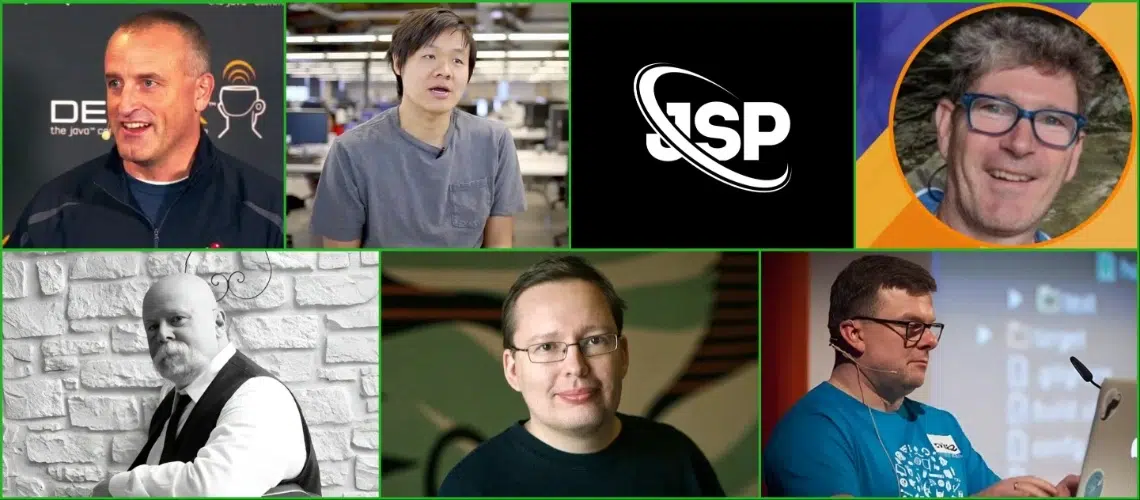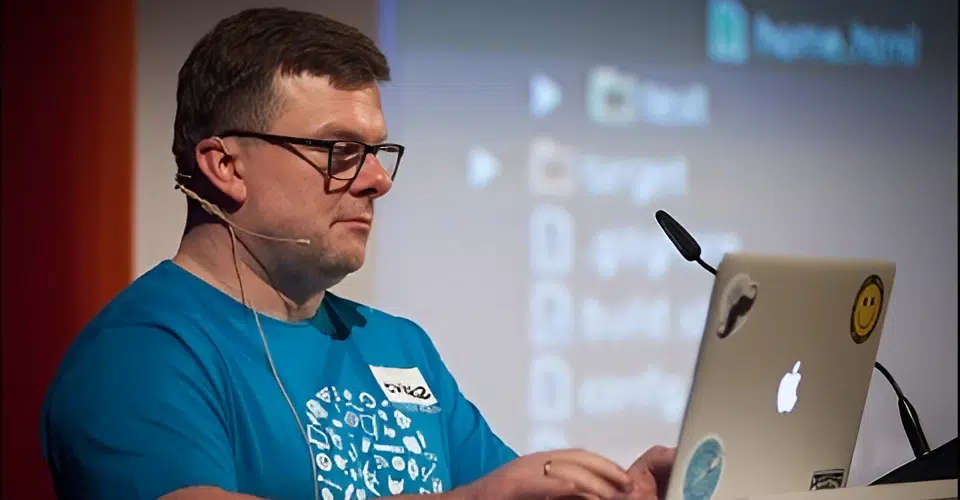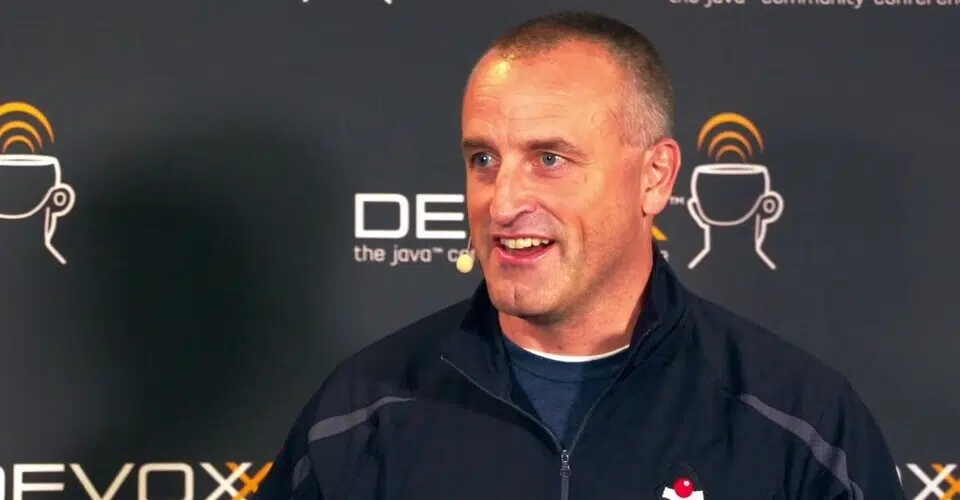Elite 18 JSP Developers for Enterprise Projects

JSP (JavaServer Pages) may be one of the older technologies in the Java ecosystem, but its legacy—and continued relevance—is undeniable.
Behind its evolution is a global community of dedicated engineers, open-source pioneers, educators, enterprise architects, and forum veterans who shaped how web applications were built with Java. This list features the most influential JSP developers active today—those who created iconic JSP-based platforms, led key specifications, published foundational tutorials, or educated thousands of developers through code, writing, and talks. Whether you’re maintaining a legacy Java web app or exploring how JSP fits into Jakarta EE’s future, these are the names to know.
- Greg Wilkins
- Arun Gupta
- Alexander Kandzior
- Bear Bibeault
- Victor Rentea
- Jean-Baptiste Nizet
- Janne Jalkanen
- Dave Johnson
- Reza Rahman
- Łukasz Lenart
- Yong Mook Kim
- Pankaj Kumar
- Brian Chan
- Matt Raible
- Svetlin Nakov
- Ivar Grimstad
- Kin-Man Chung
- Jan Luehe
Now, let’s delve deeper into their remarkable contributions and impact.
Greg Wilkins

Nationality: Australian
Greg Wilkins is the creator and lead developer of Eclipse Jetty, the lightweight Java web server and JSP/Servlet container that he first developed in 1995. As the founder of Webtide and Mort Bay Consulting, Wilkins has guided Jetty’s evolution from a component in an issue-tracker to a full-fledged open-source server powering thousands of websites.
He has also been an active member of the Servlet/JSP expert groups in the JCP, helping shape the specifications that Jetty implements. Greg’s contributions go beyond Jetty’s core – he’s influenced related projects (like CometD for web push) and contributed to Apache JBoss and ActiveMQ integrations. Under his stewardship, Jetty pioneered embedding (running a JSP container inside applications) and early support for new protocols (he famously integrated WebSockets and HTTP/2 into Jetty very quickly).
Wilkins exemplifies open-source leadership: balancing innovation with stability, and relentlessly optimizing Jetty so JSP/servlet apps can run in environments from large enterprise clusters to small IoT devices.
- LinkedIn: Greg Wilkins
- X (Twitter): @gregwilkins
- GitHub: gregw
Arun Gupta
Java EE is like a buffet. You don’t have to eat everything, but it’s nice to know it’s all there.
Nationality: Indian-American
Arun Gupta is a technologist and was one of Sun Microsystems’ first Java EE evangelists, playing a key role in promoting the Java EE 5/6 stack – including JSP – to developers worldwide. He authored the Java EE 6 Pocket Guide and Java EE 7 Essentials, and in many of Sun/Oracle’s official tutorials and sample applications, Arun’s fingerprints are present (he’s known, for instance, for the GlassFish tutorial series with JSP, JSF, EJB, etc.).
Gupta has a talent for live-coding demos: showing how to get a Java EE application (servlets, JSP, JPA) up and running on an app server in minutes, which he did at countless JavaOne sessions. After Oracle, he joined Red Hat and then Microsoft, all the while championing Java in the cloud. He’s a Java Champion, JavaOne Rockstar, JUG leader, and now Principal Program Manager for Java at Microsoft Azure. Beyond enterprise Java, Arun embraced Docker and Kubernetes early, ensuring Java/JSP-based apps could modernize.
His infectious enthusiasm and breadth of knowledge have helped keep the Java EE (Jakarta EE) community vibrant – he’s shown that even “old” technologies like JSP can adapt and thrive in modern DevOps and cloud environments.
- LinkedIn: Arun Gupta
- X (Twitter): @arungupta
- GitHub: arun-gupta
Alexander Kandzior
Nationality: German
Alexander Kandzior is the original architect of OpenCms, an open-source content management system built on Java and JSP. He started OpenCms in 1998 and continues to lead its development as CEO of Alkacon Software.
Kandzior’s vision was to empower non-technical users with a web GUI to create and publish content – and he chose JSP as the templating mechanism for its flexibility and familiarity. Under his guidance, OpenCms implemented a JSP tag library for content retrieval and editing, allowing template developers to mix dynamic content with static layouts easily. Alexander has overseen OpenCms’s growth through many versions (the project is over 20 years old) and ensured it stays current with Java standards. He frequently speaks at OpenCms Days and publishes release notes, engaging with a loyal community of enterprise users (from governments to Fortune 500 companies) that rely on OpenCms for their websites.
By inventing OpenCms and shepherding it for decades, Kandzior demonstrated how JSP can be at the heart of a robust WCM (Web Content Management) system, highlighting JSP’s strength in building extensible, design-friendly web apps.
Bear Bibeault

Nationality: American
Bear Bibeault is a veteran Java web developer best known for his influential presence on JavaRanch/CodeRanch forums and as co-author of several programming books.
Server-side Java is his core competency – “particularly Servlets and JSP”, as he once remarked in an interview. Bibeault was a long-time moderator on the JSP forums at JavaRanch, where he tirelessly helped beginners understand JSTL, the EL, and the MVC design pattern. He even created a popular open-source JSP tag library (the “CCC” constant taglib) to encourage scriptless, maintainable JSP pages. While Bear’s published books in recent years have focused on front-end (e.g. jQuery and Ajax), he has consistently argued that developers should learn pure Servlets/JSP before using high-level frameworks.
His frank, witty advice – delivered via forums, the JavaRanch Journal, and conferences – has influenced a generation of Java web developers to write cleaner, more maintainable JSP code.
- LinkedIn: Bear Bibeault
- X (Twitter): @bear_bibeault
Victor Rentea
Nationality: Romanian
Victor Rentea is a Java Champion, trainer, and consultant from Romania who has gained global recognition for his expertise in Java and enthusiasm for clean code. Formerly a lead architect at IBM, he now runs his own training firm and has introduced best practices to thousands of developers – often using Java web application examples (servlets, JSP, Spring) to illustrate concepts of clean architecture and testing.
Victor has been “drinking Java since 2006 and teaching others since 2012”. In his courses, even if the focus is on Spring or microservices, he covers the fundamentals: for instance, ensuring attendees grasp servlet basics and JSP for rendering, before diving into higher-level MVC frameworks. Rentea is also a competitive speaker; his live-coding sessions at conferences (such as “Java’s Hidden Performance Traps”) are hugely popular on YouTube. While not directly an OSS framework author, he contributes to open-source and shares utilities on GitHub.
Victor’s impact on JSP is indirect but significant – by training teams in Eastern Europe (and beyond) on how to write maintainable web applications, he’s influenced how JSP pages are written: with separation of concerns, thorough testing, and an eye for performance.
- LinkedIn: Victor Rentea
- X (Twitter): @VictorRentea
- GitHub: victorrentea
- Website/Blog: victorrentea.ro
Jean-Baptiste Nizet
Nationality: French
Jean-Baptiste Nizet, often known as JB Nizet online, is a highly respected software engineer and an unofficial “Stack Overflow Hall-of-Famer” for Java web topics. With over 200k reputation points on Stack Overflow, he has answered countless questions on JSP, JSTL, Spring MVC, and related technologies, consistently providing clear and correct solutions.
JB’s answers have guided developers in areas like preventing JSP scriptlet misuse, choosing JSTL/EL over Java code in pages, and configuring web.xml or Spring to dispatch to JSP views properly. By day, Nizet has worked as a senior developer (notably at Google’s engineering office in France), where he has applied his web expertise in large-scale projects. He also has contributed to the open-source Vaadin framework and co-authored a book on Vaadin, showing his versatility beyond JSP.
Within the community, Jean-Baptiste is appreciated as a patient teacher – thousands have learned to fix bugs in their JSP pages or optimize their web apps thanks to his detailed explanations. Though he might not have the name recognition of a book author, his collective contributions on Q&A forums make him one of the most influential JSP helpers worldwide.
- LinkedIn: Jean-Baptiste Nizet
- X (Twitter): @jbnizet
- GitHub: jnizet
Janne Jalkanen

Nationality: Finnish
Janne Jalkanen is the original creator of JSPWiki, one of the first open-source wiki engines built on JSP. He started the project in 2001 and for years led its development, eventually donating it to the Apache Software Foundation (where he remains an emeritus contributor).
Jalkanen’s work on JSPWiki showcased how JSP, combined with servlets and custom tags, could generate rich, dynamic content (wiki pages) in a highly extensible way. Beyond JSPWiki, Janne has served on the ASF board and managed various open-source projects over two decades – reflecting a deep commitment to community-driven development. Today he’s a chief engineer in industry, but still engages with open source and occasionally blogs on technology. Many developers refer to Jalkanen as a “godfather” of certain web tech – for example, in Finland he’s credited for early NFC innovations – but in the JSP world, his legacy is a popular wiki platform that inspired countless Java web apps.
- LinkedIn: Janne Jalkanen
- GitHub: jalkanen
Dave Johnson
Nationality: American
Dave Johnson is the creator of Apache Roller, a ground-breaking open-source blog server written entirely in JSP/Servlet and the inspiration behind Java blogging at Sun Microsystems. He started the Roller project in 2002 to “scratch an itch” for a Java-based blog, and it gained so much popularity that Sun adopted it for all employee blogs (blogs.sun.com) in the mid-2000s.
Johnson then joined Sun to continue developing Roller, ensuring it scaled for thousands of users. Within Roller, Dave showcased a pragmatic use of JSP: custom tag libraries for formatting, a rich UI, and a flexible plugin model – all on a standard JSP/Struts foundation. He has also authored the book RSS and Atom in Action, reflecting his expertise in web feeds. Dave remains involved with Apache Roller as a Project Management Committee member and was even VP of the project at Apache.
His work demonstrated that JSP is robust enough for a full-featured, multi-user content platform. To this day, Apache Roller (now evolved) stands as a testament to JSP’s capability, and Dave Johnson is recognized as the driving force behind that success.
- LinkedIn: Dave Johnson
- GitHub: snoopdave
Reza Rahman
Nationality: Bangladeshi-American
Reza Rahman is a prominent enterprise Java advocate who has consistently championed Java EE and Jakarta EE technologies in the community – including the humble JSP that often underpins Java web front-ends. He is currently Principal Program Manager for Java on Azure at Microsoft and a leader of the Jakarta EE Ambassadors.
A former Java EE Evangelist at Oracle, Reza is well known from conferences and user groups; he’s authored a book (EJB 3 in Action) and numerous articles. On stage and online, he often emphasizes the full spectrum of Jakarta EE, from robust back-end services to simple JSP/Servlet-based UIs, as a productive stack for developers. He has also been part of multiple JSR expert groups (like EJB and JMS). Reza’s advocacy helped galvanize the community-driven Java EE Guardians in the mid-2010s, which pushed Oracle to move Java EE to the Eclipse Foundation – thus saving and rebranding JSP as Jakarta Server Pages. He remains an outspoken “Jakarta EE ambassador” and Java Champion, author, speaker, with an eye toward the future of cloud-native Java.
Reza Rahman’s influence lies in his passion for inclusivity in the Java EE ecosystem – he ensures that even as architectures evolve, technologies like JSP get their due as part of a modern, open enterprise Java platform.
- LinkedIn: Reza Rahman
- X (Twitter): @reza_rahman
- GitHub: m-reza-rahman
- Website/Blog: reza-rahman.me
Łukasz Lenart

Nationality: Polish
Łukasz Lenart is a leading contributor and current project lead of Apache Struts 2, a popular Java web MVC framework that utilizes JSP for its view layer. An ASF member from Poland, Lenart has been actively maintaining Struts for years – guiding it through major upgrades (Java 8+, Jakarta namespace) and ensuring timely security patches.
He’s an open-source enthusiast who not only writes code but also educates: Łukasz frequently blogs and speaks about Struts’ new features, proving that the framework is “still alive” and evolving in the era of Spring and JavaScript SPAs. Developers laud Lenart for modernizing Struts 2 (integrating REST plugins, improving OGNL security, etc.) while keeping it backward compatible for legacy apps. He also contributes to other projects (like Apache OFBiz) and helps users on mailing lists and Twitter. Lenart’s stewardship of Struts demonstrates his passion for JSP-related technology – under his watch, a 18+ year-old JSP-centric framework remains a viable, actively developed option for building Java web applications.
- LinkedIn: Łukasz Lenart
- X (Twitter): @lukaszlenart
- GitHub: lukaszlenart
- Website/Blog: lenart.org.pl
Yong Mook Kim
Nationality: Malaysian
Yong Mook Kim is a Java developer best known as the founder of Mkyong.com, a hugely popular blog offering simple, copy-and-paste friendly tutorials on Java, JSP, Spring, and more.
Since 2008, he has shared hundreds of easy-to-understand code examples, making complex topics accessible to beginners. In the JSP arena, Mkyong’s guides (e.g., “JSP Hello World”, “JSTL forEach examples”, “Spring MVC with JSP”) are often top Google results and have helped millions quickly get things working. Developers appreciate his clear explanations and practical focus – all tips are tested in a real development environment before he posts them. Beyond blogging, Kim is active on GitHub and has open-sourced example projects for the community. His impact on the JSP/Java community is significant: many programmers had their first hands-on JSP experience following a Mkyong tutorial, gaining confidence to build further.
- LinkedIn: Yong Mook Kim
- X (Twitter): @mkyong
- GitHub: mkyong
Pankaj Kumar
Nationality: Indian
Pankaj Kumar is the founder of JournalDev, one of the most frequented online resources for Java developers learning JSP, servlets, and related web technologies. A software engineer with 14+ years experience, he grew JournalDev from a personal blog into a rich tutorial site that was recently acquired by DigitalOcean.
Pankaj has written hundreds of hands-on articles breaking down topics like JSP form handling, JSTL core tags, Tomcat deployment, etc., always with code snippets and clear explanations. His content is known for being up-to-date and pragmatic, reflecting his own development experience in Java and open-source contributions. Kumar is also active on social media and forums, often answering questions and updating tutorials based on community feedback. Through JournalDev, he has arguably “scaled” himself into an instructor for the global Java community – thousands of developers credit Pankaj’s tutorials for guiding them through their first JSP projects.
- LinkedIn: Pankaj Kumar
- X (Twitter): @PankajWebDev
- GitHub: WebJournal
Brian Chan

Nationality: American
Brian Chan is the chief software architect and founder of Liferay, Inc., famed for its Liferay Portal – an enterprise web platform originally built with JSP. Back in 2000, Chan created Liferay Portal as an open-source solution for nonprofits, and it has since grown into a widely adopted product (with JSP/Servlet at its core).
As a hands-on tech leader, he continued to code even as the company scaled, maintaining a culture where even the CEO could fix a bug or implement a feature. Brian’s work with Liferay demonstrated how far JSP-based applications can go: the portal supports themes, content management, collaboration tools, and more – all extensible via JSP taglibs and plugins. He’s also been a speaker on Java EE and open source business, sharing insights from Liferay’s journey. Under Brian Chan’s guidance, Liferay proved that JSP isn’t just for small apps – it can anchor massive, modular systems – inspiring confidence in Java shops that a well-architected JSP app can serve millions of users.
- LinkedIn: Brian Chan
- GitHub: brianchandotcom
Matt Raible
JSP was the gateway drug that got me hooked on Java web development.
Nationality: American
Matt Raible is a well-known Java technologist who has been at the forefront of web application development since the early 2000s. He authored Pro JSP (Apress, 2001) and Spring Live, and created AppFuse – a rapid-start web app template that offered a JSP front-end option – establishing him as an expert in bridging JSP with frameworks.
Raible’s book Pro JSP was among the seminal works for advanced JSP techniques, and through AppFuse (which integrated Struts, Spring, Hibernate with JSP) he showed how to build modern apps while still leveraging JSP for the view. Now a Developer Advocate at Okta (and Java Champion), Matt speaks frequently at conferences (Devoxx, JavaOne) and on his blog about topics like migrating legacy JSP apps to newer stacks, microservices, and front-end trends. He’s also famous for the “JHipster” project involvement (which, interestingly, can generate Spring Boot apps with Thymeleaf instead of JSP).
With his characteristic enthusiasm (and often, comparisons of various web frameworks), Matt Raible has inspired countless developers to experiment with new technologies – all while appreciating the solid foundation that JSP/servlet provided in the Java ecosystem.
- LinkedIn: Matt Raible
- X (Twitter): @mraible
- GitHub: mraible
Svetlin Nakov
Nationality: Bulgarian
Svetlin Nakov is a software engineer turned educator who has arguably trained an entire generation of developers in Bulgaria and the Balkans – many of them in Java and JSP.
With 20+ years of experience across languages (from C# to blockchain), Nakov co-founded the SoftUni (Software University) in Sofia, an institution through which thousands of students have learned programming basics, web development (servlets/JSP), databases, and more. He has authored 15 programming textbooks – including materials on Java Web development that cover JSP and servlets – which are freely used in courses across Eastern Europe. Beyond teaching, Svetlin is a regular speaker at international conferences and an active blogger, sharing insights in both Bulgarian and English. In 2004, he received the John Atanasoff Award from the President of Bulgaria for his contributions to tech education.
By tirelessly evangelizing coding and creating structured learning paths, Nakov has ensured that JSP (as part of the Java web stack) continues to be well-understood by newcomers, thereby sustaining the community in his region and beyond.
- LinkedIn: Svetlin Nakov
- GitHub: nakov
Ivar Grimstad

Nationality: Swedish
Ivar Grimstad is the Jakarta EE Developer Advocate at the Eclipse Foundation, charged with promoting and driving the evolution of Java EE (now Jakarta EE) technologies – including JSP. A Java Champion based in Sweden, Ivar has been a leader of his local Java User Group and is well known for engaging with the global Java community.
In the context of JSP, Grimstad ensures that this technology remains a well-supported part of the modern Jakarta EE platform, even as the focus shifts toward alternative MVC frameworks. He regularly speaks and blogs about Jakarta EE updates, such as the cleanup of the JSP spec in Jakarta EE 10/11. Ivar’s approachable style and consistent community updates help demystify enterprise Java for newcomers.
By bridging the gap between specification (JCP/Eclipse) and developers, he has become a respected voice ensuring that established tech like JSP continues to serve users in the cloud era.
- LinkedIn: Ivar Grimstad
- X (Twitter): @ivar_grimstad
- Website/Blog: agilejava.eu
Kin-Man Chung
Nationality: American
Kin-Man Chung is a longtime JSP and Java EE engineer at Oracle who served as Specification Lead for the JSP 2.1 and 2.2 Expert Groups (as well as the lead for the EL 3.0 spec). In the mid-2000s, Kin-Man took over stewardship of JSP from its original creators, guiding the technology through a period of critical improvements: aligning JSP with JavaServer Faces (JSF) by enhancing the Expression Language, and deprecating older features to simplify development.
He was effectively the bridge between the JSP spec and its implementations (like Apache Jasper), often applying patches and ensuring compliance. Developers who followed JSR-245 will recall Kin-Man’s detailed posts on the JCP forum explaining design decisions. Earlier in his Sun career, he also contributed to the reference implementations of JSP and JSTL (his name appears as author in many JSP source files and Javadocs).
Though not a household name to junior developers, within the JSP spec community Kin-Man Chung is highly respected – his efforts behind the scenes ensured that the “plumbing” of JSP (the EL, tag invocation, thread-safety, etc.) became solid and predictable for everyone using the technology.
- LinkedIn: Kin-Man Chung
Jan Luehe
Nationality: German
Jan Luehe is an accomplished engineer who was a key player on Sun Microsystems’ Servlet/JSP team and acted as co-spec lead for JSP 2.0/2.1. He had a direct hand in developing JSP 2.0’s new features (e.g. tag file support, the unified EL) and later ensuring JSP 2.1 dovetailed with JSF in Java EE 5.
Colleagues have noted Jan’s mastery of the servlet/JSP spec – “his understanding of… Servlets and JSP… is simply [outstanding]”. He contributed heavily to Apache Tomcat’s JSP engine (Jasper) in the early 2000s, with many core classes (for example, JspCompilationContext) bearing his name in the authorship credits. After Sun, Jan joined Salesforce.com as a software architect, where he continues to work on platform infrastructure (and even wrote about the company’s move to Java 11). But he remains best known in the Java community for his Sun tenure: from answering tough forum questions to co-authoring the official JSTL 1.2 article series.
Jan Luehe’s blend of deep technical skill and willingness to engage with the developer community helped shape JSP’s evolution – and earned him a reputation as one of the go-to experts when it comes to the “why” and “how” of JSP internals.
Wrap Up
These legends represent exceptional talent, making them extremely challenging to headhunt. However, there are thousands of other highly skilled IT professionals available to hire with our help. Contact us, and we will be happy to discuss your hiring needs.
Note: We’ve dedicated significant time and effort to creating and verifying this curated list of top talent. However, if you believe a correction or addition is needed, feel free to reach out. We’ll gladly review and update the page.
